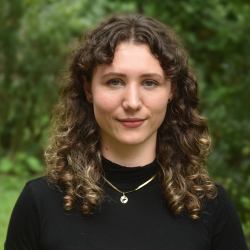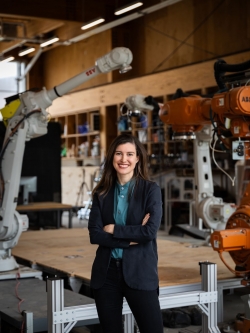Within the climate crisis, architecture and the built environment play an outsized role, both in contributions to current emissions and projections for the future. Standard design and construction practices are often wasteful, expensive, and exploitative, undermining a mission to create spaces of dignity, comfort, and delight. Within this context, this talk will present an alternative approach, focused on promoting design and construction methods that produce high-quality, low-carbon, and inexpensive outcomes, empowered by emerging advances in computational design and construction robotics. In addition to general methods, the talk will present a range of recent projects, including robotic planning and assembly of complex yet highly efficient truss structures, robotics-enabled fabrication of low-cost, low-carbon earthen and concrete structures, and algorithmic design and fabrication approaches for unconventional and circular material use.
Bio: Caitlin Mueller is an Associate Professor at MIT's Department of Architecture and Department of Civil and Environmental Engineering, in the Building Technology Program, where she leads the Digital Structures research group. She works at the creative interface of architecture, structural engineering, and computation, and focuses on new computational design and digital fabrication methods for innovative, high-performance buildings and structures that empower a more sustainable and equitable future. Mueller holds three degrees from MIT in Architecture, Computation, and Building Technology, and one from Stanford in Structural Engineering. Her research is funded by federal agencies and industry partners, including the National Science Foundation, FEMA, the MIT Tata Center, the Dar Group, Holcim, Robert McNeel & Associates, and Altair Engineering. Mueller has won best paper awards from the International Association of Shell and Spatial Structures, the Symposium on Geometry Processing, and the Journal of Mechanical Design, and was awarded the ACADIA Innovative Research Award of Excellence by the Association for Computer Aided Design in Architecture in 2021 and the Diversity Achievement Award from the Association of Collegiate Schools of Architecture in 2022.










